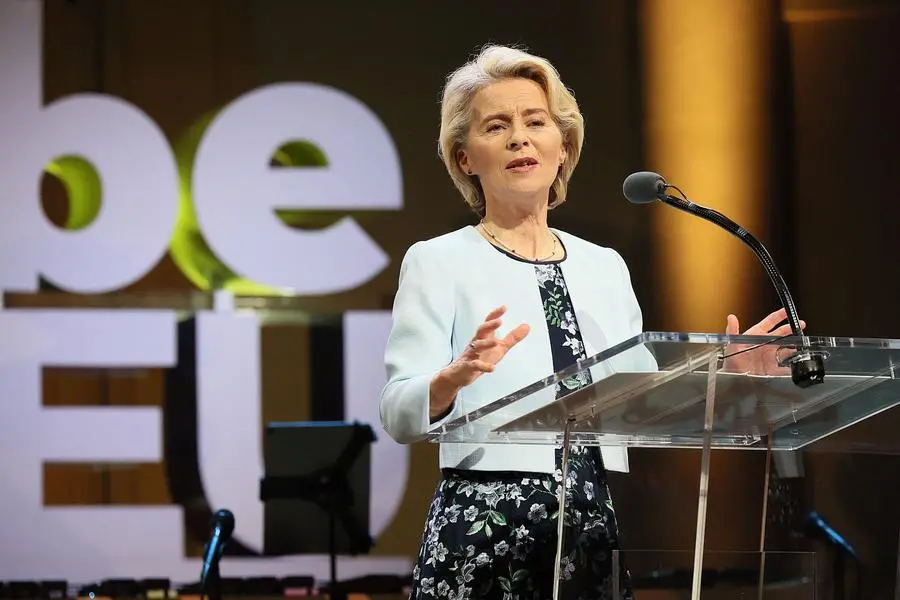PHOTO
EU chief Ursula von der Leyen told Davos on Tuesday that "Europe must up its game" on artificial intelligence, as the bloc readies landmark legislation to curb possible AI abuse.
"Our future competitiveness depends on AI adoption in our daily business. And Europe must up its game and show the way to responsible use of AI," von der Leyen said in the ritzy Swiss resort hosting the World Economic Forum.
The European Union is currently working on a draft AI Act that it views as a possible template for regulation in other parts of the world for the fast-moving technology.
In December, its member countries and EU lawmakers reached agreement on the text which seeks to rein in potential AI misuse -- such as its use for biometric surveillance and manipulation of behaviour -- while fostering innovation in the sector.
Von der Leyen said she was a "tech-optimist" and said "AI is also a very significant opportunity, if used in a responsible way," with its projected ability to boost productivity and economic growth.
AI breakthroughs are currently being led by the United States, home to ChatGPT-maker OpenAI, with China close behind.
Europe does not want to be left in the digital dust and has ambitions of growing its own AI champions, encouraging companies such as Germany's Aleph Alpha and France's Mistral AI as well as new ones.
But it wants regulatory "guardrails" to be quickly erected, especially with the risk of AI-fuelled disinformation during EU elections in June and the more general disruption AI is forecast to bring to many labour sectors and professions.
"Europe has got talent," von der Leyen said, boasting of the bloc's 200,000 software engineers with grounding in AI and its pools of industrial data.
She promised that EU startups in the sector would have access to Europe's supercomputers -- "similar to what Microsoft is doing for ChatGPT".
In the meantime, Brussels is already using its regulatory heft to make digital giants abide by EU protections for European businesses and consumers.
Last week, von der Leyen's European Commission announced it had launched a preliminary study of Microsoft's $13-billion investment in OpenAI to see it potentially could be a disguised merger.





















